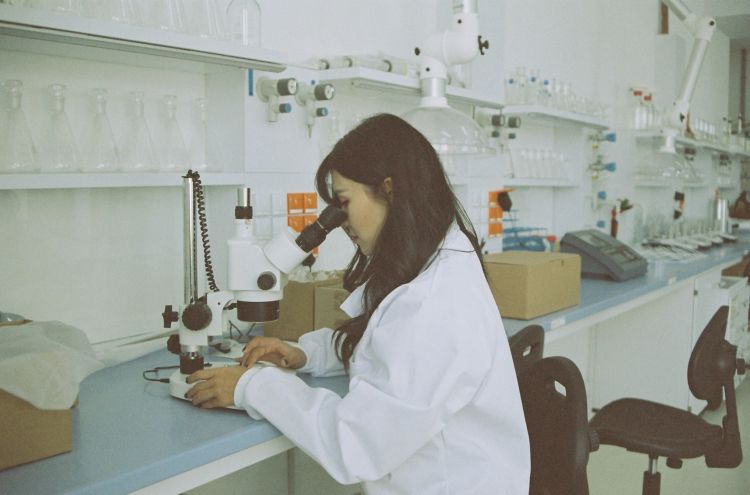Gov. Kemp: Medical Device Manufacturer Gerresheimer Expands in Peachtree City
Atlanta, GA – Governor Brian P. Kemp today announced that Gerresheimer, a manufacturer for the pharma and life science industry, will invest more than $88 million in expanding its manufacturing operations in Peachtree City, creating over 200 new jobs for Fayette County.
“This project is a prime example of the exciting growth of the life sciences industry in our state, with companies like Gerresheimer bringing career opportunities to all four corners of Georgia” said Governor Brian Kemp . “Employers from across the globe can find a skilled workforce here that we are continuously investing in through innovative programs like the GEORGIA MATCH Direct College Admissions Initiative. We’re excited to see how this expansion will further benefit the community and surrounding region.”
Germany-based Gerresheimer offers a comprehensive portfolio of pharmaceutical containment solutions, drug delivery systems, and medical devices as well as solutions for the health and cosmetics industry. Gerresheimer currently supports more than 260 jobs in Peachtree City. The existing Gerresheimer manufacturing facility is already in the midst of an expansion, where it will support an additional 180 jobs with operations beginning in April 2024. Today’s announcement marks yet another investment by the company here in the No. 1 state for business.
“We appreciate the continuous support of the State of Georgia for our expansion in the U.S.,” said Dietmar Siemssen, CEO of Gerresheimer AG . “The U.S. market is an important growth driver for us, and the expansion of our operations in Peachtree City will be key for growing our medical device business in the U.S. We are glad that we have found such favorable conditions and a highly motivated and skilled staff here.”
Gerresheimer’s new facility will be located in the Southpark International Industrial Park in Peachtree City, and will produce medical devices, in particular autoinjectors, to administer injectable drugs. Operations are expected to begin in fall 2024.
The company is currently hiring for various positions from entry level production employees to highly skilled engineers, quality managers, and administrative staff. Hiring for the new facility will start in early summer 2024. Interested individuals can learn more at www.gerresheimer.com/en/careers/jobs/job-openings or contact Vickie Britt at Vickie.Britt@gerresheimer.com.
“We are dedicated to fostering strong partnerships and economic growth in Peachtree City, evidenced by our support of Gerresheimer’s plans to expand their facility here,” said Peachtree City Mayor Kim Learnard . “Gerresheimer’s commitment to innovation in the pharmaceutical packaging industry aligns perfectly with our vision for a prosperous and vibrant city. We are excited about the additional employment opportunities and the positive impact this expansion will have on our community.”
“I am thrilled to witness Gerresheimer’s continued commitment to Fayette County through its expansive growth in Peachtree City. By choosing to expand in our community, they are not only creating job opportunities but also making an investment in the future,” said Darryl A. Hicks, Chairman of the Fayette County Development Authority . “Having been an integral part of our community for three decades, Gerresheimer’s decision to grow here speaks volumes about the quality of our workforce, the strength of our local economy, and the supportive environment that Peachtree City and Fayette County provide.”
Senior Regional Project Manager Fernanda Kirchner represented the Georgia Department of Economic Development (GDEcD) Global Commerce team on this competitive project in partnership with Fayette County Development Authority, the Metro Atlanta Chamber, and Georgia Power.
“Georgia prides itself on creating long-term relationships with companies, and we have been fortunate enough to meet with Gerresheimer’s team in both Peachtree City and their headquarters in Germany multiple times,” said GDEcD Commissioner Pat Wilson . “Companies locate in Georgia for the business friendly environment, and they choose to expand here because of the state’s solutions to the challenges facing businesses, including workforce training. Gerresheimer’s commitment to Peachtree City and Fayette County over the last 30 years shows our approach works, and we look forward to Gerresheimer’s continued growth in Georgia!”
Georgia is outpacing the nation in life sciences employment, with a 20 percent growth rate since 2015. The industry supports more than 78,000 jobs statewide, and at least 4,000 life science organizations operate in Georgia. In 2022, Georgia exported over $1 billion in medical instruments to international markets.
About Gerresheimer
Gerresheimer is an innovative system and solution provider and a global partner for the pharma, biotech and cosmetic industries. The company offers a comprehensive portfolio of pharmaceutical containment solutions, drug delivery systems, and medical devices as well as solutions for the health and cosmetics industry. The product range includes digital solutions for therapy support, medication pumps, syringes, pens, auto-injectors, and inhalers as well as vials, ampoules, tablet containers, dropper bottles, other bottles, and more. Gerresheimer ensures the safe delivery and administration of drugs to the patient. Learn more at www.gerresheimer.com.





